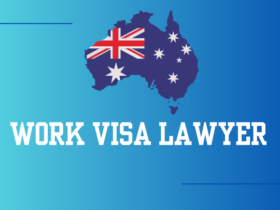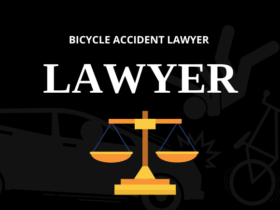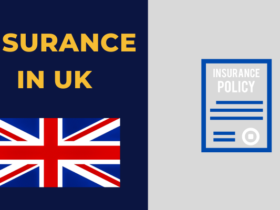Introduction Of The Dive Dive Insurance Guide In 2022
The Dive Dive Insurance Guide In 2022. We’re going to compare the tax benefits with a modified endowment contract and a non-modified endowment contract life insurance policy we’ll go through the MEC limit how to set your MEC limit? What to do if your policy ever becomes classified as a MEC? What happens if you accidentally go over the MEC limit?
I’ll answer that one very quickly it’s very easy to reverse as long as it has done so within 30 days of triggering a MEC and the insurance company notifies you and your agent very very simple we’ve had it happen several times which never has a policy permanently become a MEC.
MEC treatment
When we were notified and we were not notified either. So let’s have some fun with this one when it comes to a whole life insurance policy why people are interested in it I’m going to set the foundation before we get into the MEC treatment here is the core benefits here we often refer to with the cash value it is a safe liquid and tax-free area to position money.
Safe means if it’s properly set up with one of the top companies specifically the 4 major mutual companies we’ve seen we’ve got historical data to validate it it’ll typically produce a net internal rate of return between 3% to 5%.
Value Life Insurance Policy
The money in a cash value life insurance policy anytime you want and a unique feature to a life insurance policy concerning how loans work once a dollar passes through that cash value if you just let it sit and grow and earn call it 4% in between the 3% to 5%.
If you decide to take a loan against it let’s say you have $100,000 in cash value and you take a loan of $50,000 half of your equity you take a $50,000 loan you’ll still earn that 4% on the full $100,000 as if you never touched it in the first place. Interesting, isn’t it?
A lot of real estates investors are interested in that and often they’ll either borrow directly from their policy or utilize a cash value collateral loan we’ve got a lot of other content on that. And then tax-free that’s always been a huge point of attraction to cash value life insurance.
A Non-MEC Policy And A MEC Policy
If we do it properly it’s tax-free. Then of course the death benefit is paid out 100% income tax-free this is very popular when it comes to legacy planning and also just life insurance protection. What I’ll add as we get into the MEC treatment of life insurance policies is the death benefit is always paid out income tax-free regardless of whether your policy is a MEC or not. You Can Also Read The Best Insurance Lawyer Performance With The Major Mutuals.
Let’s compare some of the main bullet points here with a non-MEC policy and a MEC policy specifically concerning the cash value build-up and how taxes work. So with the non-MEC on the topic of cash value, the growth is technically tax-deferred.
A Tax-Free Asset
It is not automatically a tax-free asset your cash value per the IRS does grow tax-deferred however you can access your money anytime you want completely tax-free if it is done so properly. I emphasize that word if for a reason.
The specific reason why I do that is cash value life insurance is always marketed tax-free, tax-free and there’s not enough awareness on the subject in my opinion. So one of the ifs that can trigger a taxable event is a modified endowment contract there are other causes as well which we’ve got some content on.
If you have a whole life insurance policy you can always withdraw up to your cost basis is the total amount of money you have paid into the policy so if I’ve paid in $100,000 and I have a cash value of $300,000 my cost basis would be my $100,000 that I’ve paid into the policy.
Taxed As Ordinary Income
I can always withdraw up to my cost basis anything beyond that will be taxed it’ll also be taxed as ordinary income. Loans can be taken completely tax-free now with that said because we don’t want to put the gotcha moment in there what can trigger a taxable event here is if I surrender the policy.
If I say hey I’m going to cash this puppy out I’m no longer interested in this policy I don’t need for it I’m just better served with my money elsewhere that’s your personal feeling well in that particular case you would be liable to pay ordinary income tax on the gains.
So for example, if you again let’s use this example have a cost basis of $100,000 that the total dollar amount you’ve paid in your cash value has grown to $300,000 which means you have a gain of $200,000 if you cashed that policy out and said send me the check for $300,000 which they would do $200,000 would be taxed as ordinary income added.
The Policy Lapses
Other income you earn for the year as well so I does want to be aware of that. Another example is if a policy lapses and I’ve taken more money than what I’ve paid in kind of like a surrender issue I’ll be liable to pay income tax on the gains.
If there’s a large loan balance on it that can make the pain even worse the tax bill even larger our other content goes into detail on that but those are cases that can result in taxable events on non-MEC policies they don’t happen that often.
Death Benefit Tax-Free
When they do is when awareness does not exist. The death benefit like we mentioned earlier paid out income tax-free and that was all around the subject or the topic of a non-MEC policy. So on the modified endowment contract.
In the example on the left as a foundation on the cash value, the growth is still tax-deferred regardless of your policy being a MEC a non-MEC or a modified endowment contract that cash value builds up over time tax-deferred. With a MEC if you never touch.
Importance Of Cash Value
Cash value you don’t have to worry about the taxes now here’s where you do have to worry about it if you ever decide to access the cash value you’re going to be taxed on the gains and it’s going to occur on a last in first out basis. So let’s explain.
A little bit take the same example let’s assume that you’ve paid $100,000 your cash value has built up to $300,000 over time you have gains of $200,000. If you said okay I’d like to take income from my policy and it’s a MEC the gains of $200,000 will be taxed first so you’ve got $300,000 here you say hey I want to pull out $100,000 to purchase a piece of property.
I just want to pull that amount of money out as income you would be taxed on that even though it’s your cost basis you’re taxed on a last in first out basis so the gains will be taxed first and then once you’ve pulled out $200,000 total than the last $100,000 in there would not be taxed as ordinary income.





























Leave a Reply